#Alcohol Rehabilitation
Text
Alcohol Rehabilitation Centre – Your Guide to Recovery
Alcoholism is one of the most prevalent types of substance abuse and is often underestimated. Most people cannot overcome this vice themselves, so long-term dependence on alcohol requires professional intervention. The alcohol addiction rehabilitation centre will provide systematic care and medical support in the course of overcoming the problem. Tulasi Health Care Rehabilitation Centre, Delhi, provides overall programs by which one can get back one's lien.
Rehabilitative Care at an Alcohol Rehabilitation Facility: Why?
Addiction to alcohol affects the body as well as the mind. Skilled assistance is very important since this could get quite dangerous in case of improper withdrawal. An alcohol rehabilitation centre offers medical detox so that withdrawal symptoms can be taken care of safely, followed by a structured program to ensure that recovery is complete.
Detox and Medical Supervision: The first step for the treatment of addiction to alcohol is detoxification. In a rehabilitation centre in Delhi NCR, the patients are monitored by medical persons in this critical phase for their safety.
Psychiatric Support: The psychiatrist in Delhi is an important component in alcohol rehabilitation as he identifies the co-existing mental health conditions such as depression and anxiety that occur with alcohol dependency.
Therapeutic Care: It is the significant foundation of recovery. Individual counseling, cognitive behavioral therapy, and group sessions help in learning ways to prepare plans and strategies to handle cravings and prevent relapse.
Key Advantages of an Alcohol Rehabilitation Centre
24/7 Medical Care: The symptoms during alcohol withdrawal can be extreme; hence, this is critical as the needed medical supervisions must be considered for detoxification.
Comprehensive Care: A top psychiatrist in Delhi would work with individuals to treat the mental health aspect of their addiction; these are facilities that ensure patients are treated as a whole.
Supportive Setting: The best rehabilitation center in Delhi NCR provides peaceful and supportive surroundings devoid of any triggers that may take them back to the habit.
Tulasi Healthcare: Your Dependable Partner in Alcohol Recovery
As one of the leading rehabilitation centers for alcoholism in India, Tulasi Healthcare has specialized programs designed to suit each patient's needs. Our multidisciplinary team consists of experienced psychiatrists, therapists, and support staff who are committed to providing an enabling environment to help patients once again grasp their lives.
0 notes
Text
youtube
Substance Use & Recovery: RoarWellness Founder Dhruv Tanwar's Insights with Ed Innova
1 note
·
View note
Text
Addiction treatment program for the personality
Paradigm Process of Healing your Personality teaches you how to become aware of the masks of persona who have adopted since childhood and how to replace them with healthy aspects of your highest, most sacred self.
Learn more about our Addiction treatment program for the personality which offers 10 crucial steps targeting your personality for recovery. To create a Paradigm Shift from the old addicted self to a new recovered self requires us to become conscious of all our unconscious thoughts, perceptions, feelings, automatic actions, traits, routines, and emotional reactions that we’ve been conditioned into…
#addiction treatment program#alcohol rehabilitation#alternative addiction program#Alternative Treatment for Drug Addiction#drug addiction recovery#Luxury rehab centre in South africa#luxury rehab retreats#rehab alternatives#residential rehab
0 notes
Text
















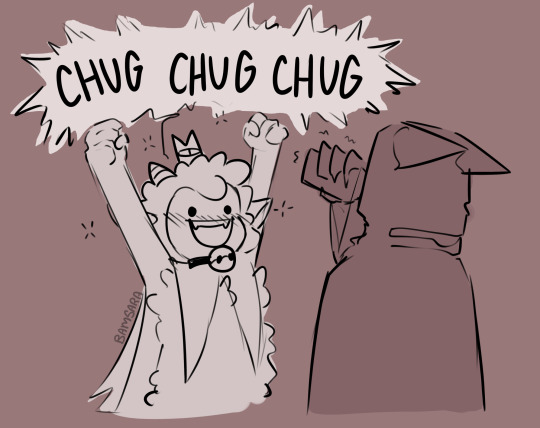
Alternate scene for Trod 'Drunken Gods' chapter where Lamb is already drunk before Narinder even arrives to the party. Gotta love 'liquid courage'
#i have a continuation to this btw ill post in a bit#trod au#the rehabilitation of death#narilamb#narinder x lamb#cult of the lamb#cw alcohol#cw drunk#doodles#btw that crab is a sona for twitch chat lmao
12K notes
·
View notes
Text
Understanding Alcohol Rehabilitation Treatment: Road to Recovery
Alcohol addiction is a pervasive issue affecting millions worldwide, with far-reaching consequences on physical health, mental well-being, and social relationships. Fortunately, alcohol rehabilitation treatment offers hope and support for those struggling to break free from the grip of addiction. In this comprehensive guide, we delve into the various aspects of alcohol rehabilitation treatment, exploring its importance, approaches, and key components.
Understanding Alcohol Addiction
Before delving into rehabilitation, it's crucial to grasp the nature of alcohol addiction. Alcoholism is a chronic disease characterized by the compulsive consumption of alcohol despite its detrimental effects. Over time, dependence develops, leading to tolerance and withdrawal symptoms when attempting to quit.
Importance of Alcohol Rehabilitation Treatment
Alcohol rehabilitation treatment plays a pivotal role in addressing addiction holistically. It offers individuals the opportunity to regain control over their lives, break the cycle of addiction, and embark on a journey toward sobriety and improved well-being. Moreover, rehabilitation helps individuals confront underlying issues contributing to their alcohol abuse, such as trauma, stress, or co-occurring mental health disorders.
Approaches to Alcohol Rehabilitation Treatment
Alcohol rehabilitation treatment encompasses a range of approaches tailored to meet the diverse needs of individuals battling addiction. Some common approaches include:
Medical Detoxification
Detoxification, often the initial phase of rehabilitation, involves the supervised withdrawal from alcohol. Medical professionals monitor individuals closely to manage withdrawal symptoms safely and alleviate discomfort. Medications may be administered to ease symptoms and reduce the risk of complications.
Inpatient Rehabilitation
Inpatient rehabilitation provides intensive, round-the-clock care within a residential setting. Individuals reside at the facility for the duration of treatment, participating in structured therapy sessions, group activities, and skill-building exercises. This immersive environment fosters a supportive community and minimizes triggers that could lead to relapse.
Outpatient Rehabilitation
Outpatient rehabilitation offers flexibility for individuals who cannot commit to a residential program or have completed inpatient treatment. Participants attend therapy sessions and counseling appointments while residing at home, allowing them to maintain work, school, or familial responsibilities. Outpatient programs vary in intensity, ranging from weekly sessions to more frequent interventions.
Holistic Approaches
Holistic rehabilitation approaches consider the interconnectedness of mind, body, and spirit in the recovery process. These approaches may incorporate alternative therapies such as yoga, meditation, acupuncture, art therapy, and mindfulness practices to promote overall well-being and address underlying issues contributing to addiction.
Key Components of Alcohol Rehabilitation Treatment
Regardless of the specific approach, alcohol rehabilitation treatment typically encompasses several key components essential for successful recovery:
Individualized Treatment Plans
Effective rehabilitation begins with comprehensive assessments to understand each individual's unique needs, challenges, and goals. Treatment plans are then tailored accordingly, incorporating evidence-based practices and addressing co-occurring disorders.
Behavioral Therapy
Behavioral therapy forms the cornerstone of alcohol rehabilitation, helping individuals modify destructive thought patterns and behaviors associated with addiction. Cognitive-behavioral therapy (CBT), motivational interviewing, and contingency management are among the commonly employed techniques to foster lasting change.
Peer Support
Peer support groups, such as Alcoholics Anonymous (AA) or SMART Recovery, offer invaluable support and encouragement throughout the recovery journey. These groups provide a sense of belonging, accountability, and shared experiences, promoting sustained sobriety and relapse prevention.
Aftercare Planning
Recovery is an ongoing process, extending beyond the formal rehabilitation program. Effective aftercare planning ensures individuals have access to continued support and resources post-treatment. This may include outpatient therapy, sober living arrangements, alumni programs, and community-based support networks.
Alcohol rehabilitation treatment offers a beacon of hope for individuals grappling with addiction, providing a structured pathway toward recovery and renewed vitality. By addressing the multifaceted aspects of addiction and empowering individuals with tools for change, rehabilitation instills hope and facilitates lasting transformation. With commitment, support, and professional guidance, individuals can embark on a journey of healing, reclaiming their lives from the clutches of alcoholism.
1 note
·
View note
Text

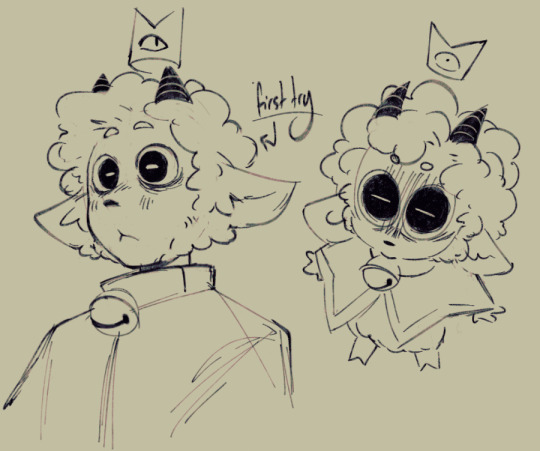
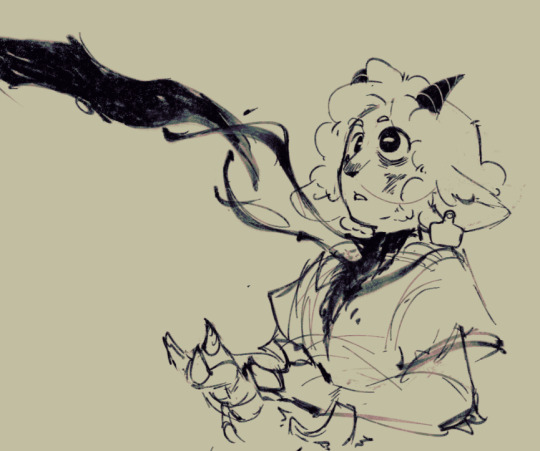

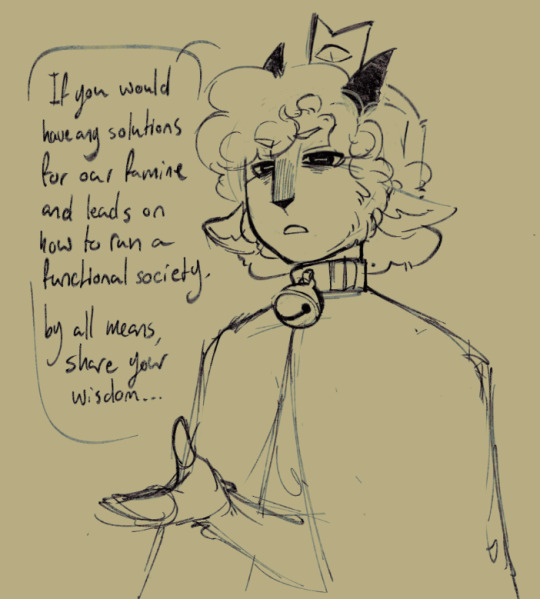


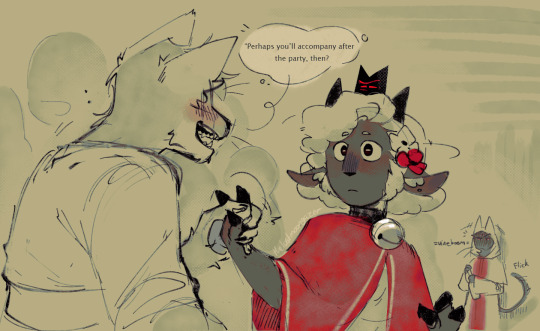



gonna keep it real with you all i mainly got into cotl so i could have better context to read the TROD fic .......
The Rehabilitation Of Death AU belongs to @bamsara
the comic scene is from chapter 16 lol
#cult of the lamb#cotl#trod au#trod spoilers#the rehabilitation of death#/ suggestive#/ alcohol#narilamb#cotl narinder#cotl narilamb#narinder x lamb#moon art#comic#/ long post#made myself late to start my stream cuz i wanted to finish this fbhdjsv#ill be live in a sec dw#also emoting the little crown was the best part of this comic LMAO i see why bamsara does it all the time in their comics#trod tyren#trod lambert#trod narinder
7K notes
·
View notes
Text
What is the Role of Rehabilitation in Addiction Recovery?
Rehabilitation is not just a treatment, it is a lifeline for those battling addiction. It offers a structured and supportive environment where individuals can break free from the grip of addiction. At Samarpan, we use a holistic approach to treatment. Rehabilitation serves as a lifeline for individuals trapped in the cycle of addiction. Rehabilitation acts as a guiding light throughout this journey, providing individuals with the tools and support needed to build a healthier and drug-free life.
#what is rehabilitation#drug rehabilitation#drug rehabilitation centre#alcohol rehabilitation#alcohol rehabilitation centre#drug and alcohol rehabilitation centre#rehab centre#best rehabilitation centre
1 note
·
View note
Text
What are the steps for a recovering alcoholic?
#Alcohol Rehabilitation#Benefits of Alcohol Rehabilitation#Recovering Alcoholic#rehabilitation centre in delhi
1 note
·
View note
Text
The Holistic Approach to Alcohol Rehabilitation: Healing Mind, Body, and Spirit
Alcohol addiction is a complex and devastating condition that affects individuals physically, mentally, and emotionally. The journey towards recovery requires a comprehensive and holistic approach that addresses the underlying causes of addiction while promoting overall well-being. In this blog, we will explore the holistic approach to alcohol rehabilitation, its advantages, and how it aids individuals in achieving lasting sobriety and a fulfilling life.
1. Treating the Whole Person:
One of the key principles of the holistic approach is treating the individual as a whole, acknowledging that alcohol addiction affects every aspect of their being – mind, body, and spirit. This approach recognizes that physical symptoms are often intertwined with psychological, emotional, and spiritual factors. By addressing these interconnected elements, individuals can experience true healing and long-term recovery.
2. Comprehensive Assessment and Personalized Treatment Plans:
Holistic alcohol de addiction centre in Mumbai begins the journey to recovery by conducting thorough assessments to understand each individual's unique needs and challenges. This assessment includes evaluating physical health, mental well-being, emotional state, social support system, and spiritual beliefs. Based on this assessment, personalized treatment plans are created, tailored to address the specific needs of the individual.
3. Physical Healing and Detoxification:
Holistic alcohol rehabilitation incorporates medical supervision to ensure safe detoxification from alcohol. This process is carefully managed to minimize withdrawal symptoms and potential complications. Additionally, holistic centers focus on restoring physical health through nutrition, exercise, and alternative therapies such as acupuncture, massage, and yoga. These practices assist in repairing the body and promoting overall wellness.
4. Mental and Emotional Well-being:
Addressing the psychological and emotional aspects of alcohol addiction is crucial for sustainable recovery. Holistic rehabilitation centers in Mumbai provide various therapeutic interventions, including individual counseling, group therapy, cognitive-behavioral therapy, and mindfulness practices. These approaches help individuals understand the root causes of their addiction, develop healthy coping mechanisms, and learn strategies to manage cravings and triggers.
5. Spiritual Nourishment:
The holistic approach recognizes the importance of spiritual well-being in the recovery process. This does not necessarily refer to religious beliefs, but rather finding meaning, purpose, and connection to something greater than oneself. Holistic alcohol rehabilitation centers may incorporate practices such as meditation, mindfulness, and reflection to help individuals explore their spirituality and cultivate inner peace and serenity.
6. Supportive Community and Aftercare:
Holistic rehabilitation understands the significance of a supportive community in sustaining recovery. These programs often provide a nurturing environment that fosters connection and mutual support among peers. Additionally, aftercare plans are developed to ensure individuals have ongoing support and resources upon completing the rehabilitation program. This may include continued therapy, support groups, sober living arrangements, and access to community resources.
Conclusion:
The holistic approach to alcohol rehabilitation centres in Mumbai recognizes that addiction is not just a physical ailment but a multi-faceted condition that requires a comprehensive treatment approach. Individuals can achieve lasting sobriety and transformation by addressing the mind, body, and spirit. Through personalized treatment plans, physical healing, mental and emotional support, spiritual nourishment, and a strong sense of community, holistic alcohol rehabilitation empowers individuals to reclaim their lives and embrace a future free from alcohol addiction. If you or someone you know is struggling with alcohol addiction, consider exploring the benefits of a holistic approach to embark on a holistic healing and recovery journey.
0 notes
Text
Drug & alcohol rehabilitation
There are plenty of people who are dealing with drug issues these days, and this is the only reason why you should go for Drug & alcohol rehabilitation connect with experts, and they can help you in the best possible way. one of the best parts about going for alcohol abuse rehab centers is that it provides you with a safe and supportive environment where you can start your journey to recovery.
0 notes
Text
Alcohol Rehabilitation Center in Delhi NCR

AnandaCare is one of the best places to help people suffering from alcohol addiction to overcome alcohol dependence and achieve sobriety. Alcohol rehabilitation can be done in a variety of settings, such as outpatient clinics, residential treatment centers, and hospitals, and may involve a combination of medical, behavioral, and psychological treatments. Overall, our alcohol rehabilitation center in Delhi is a comprehensive approach that seeks to help individuals overcome their alcohol addiction and achieve a healthy, fulfilling life in recovery.
#alcohol rehabilitation center in Delhi#alcohol rehabilitation center#alcohol rehabilitation#alcohol rehab center Delhi#alcohol rehab in Delhi
0 notes
Text
*This poll was submitted to us and we simply posted it so people could vote and discuss their opinions on the matter. If you’d like for us to ask the internet a question for you, feel free to drop the poll of your choice in our inbox and we’ll post them anonymously (for more info, please check our pinned post).
#clubbing#drink#drinking#alcohol mention#liquor#recovery#rehabilitation#alcohol rehab#tumblr polls#poll#polls#tumblr poll#incognito polls#random polls#poll time
220 notes
·
View notes
Text
0 notes
Text
Nesta, Interrupted: gendered perceptions of alcoholism in ACOSF
CW: addiction, sexual assault, gendered violence.
Creds: I’m a licensed counselor with a degree specialization in treating addiction. I have career experience with multiple modes of mental health, trauma, and substance use treatment in women-specific carceral, institutional, and healthcare settings. And I know anyone can come on the internet and say that, but I pinky promise.
The short version:
ACOSF stigmatizes alcoholism in line with cultural standards.
Western culture feels differently about female and male alcoholics due to systemic sexism, and thus treats them differently.
Women’s experience of alcoholism is often compounded by or even a result of systemic factors and intersectional identity.
Nesta’s treatment in ACOSF, while repugnant, is in many ways very accurate of attitudes today.
(I’ll be using “women/men” and “male/female” to denote cis afab and amab people. Little research exists on the experiences of queer, nonbinary and gender expansive considerations in addiction and recovery, which is a fuckin’ shame. Studies are also largely conducted with white participants due to enormous barriers to treatment for Black, Indigenous, and people of color, so this convo is inherently incomplete where it neglects those intersections.)
Okay, first things first: ACOSF is a book that stigmatizes alcoholism. I will not be taking questions.
The number one thing to understand is that in America, land of Miss Sarah, we are very bad at addiction treatment (tx). Why? Because our culture hates addicts has as stigma around addiction. And female alcoholics bear a very specific set of stigmas based in their identity.
In Susanna Kaysen’s memoir Girl, Interrupted , Kaysen’s character is institutionalized following a non-fatal suicide attempt. When evaluated, she’s diagnosed with borderline personality disorder, that bastion of diagnoses perfect for people (75% of whom are female-identified) who don’t fit into our polite definition of functioning. As the book unfolds, she reflects on how (white) women are often pathologized when they buck against systems of oppression that create the dysfunction in them in the first place. That is not to say other women in the institution are not genuinely in need of help, nor that mental illness in women is always from a systemic wound. But it’s crucial in the treatment of female addiction and mental health disorders to considered the systemic factors of gendered violence and patriarchy, and the attitudes we hold about women who struggle with drinking.
Think about female alcoholics in media. If she’s young, she’s a loose, reckless sl*t looking for trouble and deserving of the reality check when she finds it (Amy Schumer in Trainwreck, Lindsay Lohan in general). Or if the woman are older, they are discarded, or gross, or pathetic, or evil like anyone Faye Dunaway played or Eminem’s mom in 8 Mile (deep cut lol). Men are afforded a much larger spectrum of experiences and struggles - Ernest Hemingway, Leaving Las Vegas, Sideways, the dude from A Star is Born, Frank from Shameless (brilliant), frat boys, blue collar workers, introspective tortured artists, fucking IRON MAN. I could go on forever, but I hope that illustrates the depth and diversity of male-centric stories of alcoholism not often afforded to women.
One of the most empathetic and accurate portrayals of female alcoholism, in my opinion, is in the show Sharp Objects (the book, too, but actually witnessing it makes a difference). We see Amy Adams’ Camille swig vodka from an Evian bottle while fending off vicious, veiled attacks from her verbally and emotionally abusive mother and experiencing flashbacks of teenage sexual assault. We watch her struggle to find emotional safety in her conservative hometown, both wanting to fit in and get out in order to survive. We GET why she drinks and I have trouble blaming her for it even as she wreaks havoc on herself and others. We can see her clawing just to make it out alive, and alcohol is the tool she’s using to do it, for better or worse.
Which is where Nesta enters the chat. When we get our first glimpse of her alcohol use is ACOFAS, it’s portrayed as something everyone knows about but that she’s still mostly keeping it together - her dress is clean, her hair is neatly braided, she doesn’t need a chaperone to show up to a family event. The deterioration between ACOFAS and ACOSF is alarming, and we know that alcoholism is a progressive condition so that tends to happen. Was there a particular trigger? That’s hard to say. Solstice certainly didn’t help, especially with the pressures to perform and conform to the standards of the Inner Circle aka the people in power. I imagine seeing her sisters bouncey and reveling in the world that stole them and killed their father was probably.. tough, to say the least. The barge party seems to be a turning point as well, though this one is more confusing to me. But given the child abuse, extreme poverty, sexual assault, kidnapping, bodily violation, witnessing her father’s murder, almost dying, WAR - and that’s not even to mention essentially becoming a refugee - it would be amazing if she DIDN’T drink. She 100% has complex trauma, and is looking for ways to cope.
No one with full capacity dreams of becoming an addict when they grow up. Addiction, in my professional and personal experience, is largely a strategy for coping with a deeper wound. People don’t drink to feel bad. They drink to feel good, and to survive. Nesta herself is drinking to survive, but it’s having the unfortunate side effect of killing her at the same time. As she slides into active addiction, the thought of her own death may even be comforting, and alcohol in that way is her friend. (There's some interesting research right now framing addiction as an attachment disorder, but I don't know enough to speak on it much.)
So she obviously needs help. That’s not a debate. What is a debate is how the IC should best go about intervening. A variation on the Johnson method is used in ACOSF (the one from the show Intervention) and appears to be successful only because they threaten her if she doesn’t comply. This method has mixed data to support it, and while it’s very good at getting people into tx, there is a higher relapse rate for those who receive it (1). The “family” gathers and tells her the ways she’s hurt them and tell her the consequences if she doesn’t seek the help they’re offering. And again, so many of their reason are the effects on THEM, how she’s making THEM look, not her pain.
The IC’s ignorance and dismissal of her alcoholism in ACOSF is frankly mystifying. Why do they intervene on all the drinking and sexing, anyway? It seems like they’ve been fine enough with it up to this point. But now it's gone too far, not because of her illness but because she is embarrassing them. And I don’t know about you, but between Cassian apparently fucking half of Velaris and Mor’s heavily documented emotional drinking, that’s hard to square. It makes it feel much more likely that they don’t like the way she is coping, that she is not fitting into their picture of who she’s supposed to be. This picture is inherently gendered, because Prythian society and those who live in it have explicit and implicit expectations of gender roles, whether they’ll admit it or not. Cassian and Mor are playing their roles well; Nesta is not.
That leads me to believe it is NOT all about her, but the systemic and internal factors influencing their perception of her and the ways she’s struggling. It’s distasteful to them for her, a female, to be deteriorating this publicly, despite the fact that her very identity makes it harder for her to function in the patriarchy of Prythian. We hear almost exclusively about sexual violence against women, aside from 2 male characters. Past or present assault of women is a major plot point on multiple occasions (Mor, Gwyn, Nesta, Emerie, Rhysands mom and sister, the lady of autumn, Cassians mom, Azriels mom, I could go on). But something about the way Nesta is contending with that is unacceptable, and I believe it’s because she’s not trying to cover up her dysfunction. In prythian, we keep these things hidden- Mor’s assault is never processed in full, Azriel’s mom seems to be alone at Rosehall, priestesses are literally hidden inside a mountain for centuries. Women process trauma alone and in the dark, but Nesta is in the light and she is loud. She is refusing to hide her problems, and the IC don’t like that, whether they realize it or not.
So why don’t the IC understand this? Like I said earlier, as a culture we hate addicts, or what they stand for, in very much the same way I think we hate people experiencing homelessness. We convince ourselves it was a series of bad choices that led someone where they are, choices we would never make because we are smart, smarter than them. We believe are more in control than that. We can prevent bad things from happening to us because we are good, because we are better than whoever it’s happening to. But the reality is almost ALL of us are one hospital stay away from homelessness, just as all of us are one trauma away from addiction. And with female addicts, we have another layer of expecting women to only struggle nicely and quietly, or to go away. Intersectional factors are at play here, too: white women are much more likely to have alcoholism attributed to mental health and trauma factors, where people of color often suffer the same addiction being more associated with crime. You can imagine how that plays out differently.
So what is the effect of all this? Gendered expectations lead to not only external stigma around addiction and tx, but also to internalized stigma which can limit willingness to seek tx. (2) Many social forces encourage women to drink and discourage them from telling anyone. Factors such as poverty, family planning, access to education, racial discrimination, and location can make services harder to access. Internally, women are more likely to enter treatment with less confidence in their ability to succeed, but report more strengths and more potential to grow recovery strengths during and following tx. For men, the pattern is reversed (3). And women have more successful tx episodes overall when gendered considerations are a part of the design and implementation of services (4). For Nesta, the effect is that she’s forced into treatment and copes by having hate sex with her ex and changing herself to conform to her family’s expectations while the House and the Valkyrie’s actually take care of her. I do not see how Sarah drew the line from there to recovery, I truly don’t. If anything, she recovers in spite of the ICs intervention, not because of it.
In summary, Nesta Archeron deserved better. Nesta deserved the same compassion the book gives to men who are struggling, and it’s a reflection of not just the book’s culture but the author’s culture that she doesn’t get it. Female alcoholics are worthy of treatment that integrates their identities, as those identities are often essential factors contributing to their addiction. What's shown in ACOSF is a reality many women live, and they shouldn't have to.
Barry Loneck, James A. Garrett & Steven M Banks (1996) The Johnson Intervention and Relapse During Outpatient Treatment, The American Journal of Drug and Alcohol Abuse, 22:3, 363-375, DOI: 10.3109/00952999609001665
Groshkova T, Best D, White W. The Assessment of Recovery Capital: Properties and psychometrics of a measure of addiction recovery strengths. Drug Alcohol Rev. 2013;32(2):187–94.
Best D, Vanderplasschen W, Nisic M. Measuring capital in active addiction and recovery: the development of the strengths and barriers recovery scale (SABRS). Subst Abuse Treat, Prev Policy. 2020;15(1):1–8.
Polak, K., Haug, N.A., Drachenberg, H.E. et al. Gender Considerations in Addiction: Implications for Treatment. Curr Treat Options Psych 2, 326–338 (2015). https://doi.org/10.1007/s40501-015-0054-5
#nesta archeron#pro nesta#alcoholism#mental health#sexism#acotar#acosf#stigma#rehabilitation#prythian university#sjm critical
140 notes
·
View notes
Text



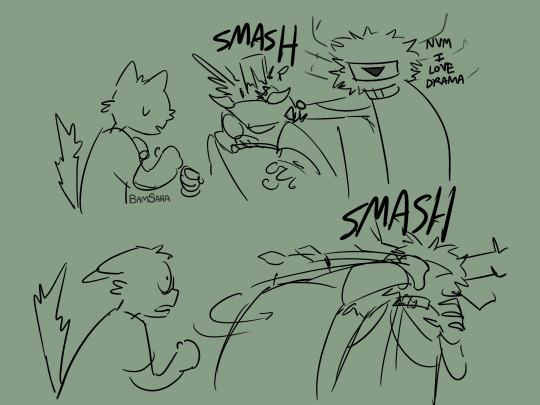



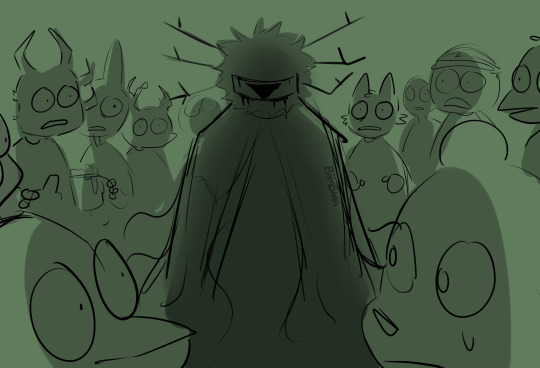
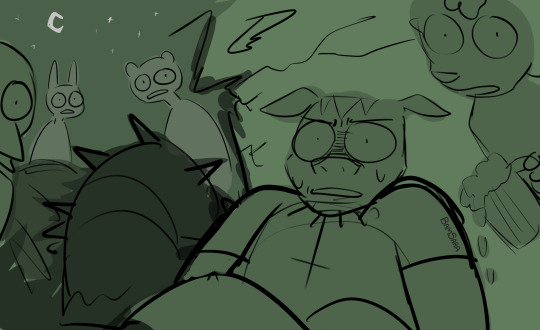
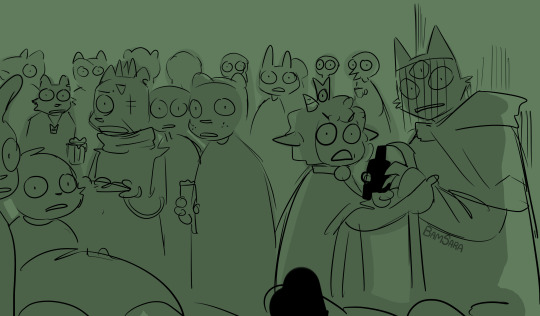


Local chaos god gets humbled, creates chaos over it. His aim still needs some work though
I really need to stop drawing Drunken Gods chapter stuff and actually finish the damn chapter lmao
#trod au#the rehabilitation of death#cult of the lamb#cotl leshy#cotl yellow cat#leshy x yellowcat#leshycat#slight narilamb if you squint there#doodles#cw alcohol#cw drug mention
8K notes
·
View notes
Text
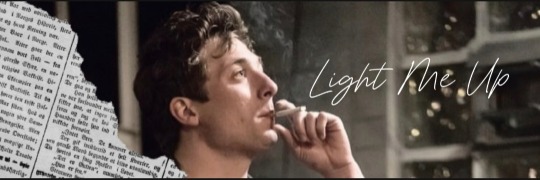
𝙋𝙝𝙞𝙡𝙞𝙥(𝙡𝙞𝙥) 𝙂𝙖𝙡𝙡𝙖𝙜𝙝𝙚𝙧 𝙭 𝙍𝙚𝙖𝙙𝙚𝙧
Synopsis: You attend your AA meetings at least once a week and you yourself know that you've always had your eyes on the Dirty blonde, maybe, this could be the day you could make something out of it.. Wouldn't you like to know?
Wc: 1.3k
Cw: alcohol, violence, drugs, angst, intoxication, aa meetings
A/n: my first oneshot, shameless too, enjoy lol
.・゜-: ✧ :.・゜-: ✧ .・゜-: ✧ .・゜-: ✧ :-.・゜-: ✧ :-
You've never seen him like this and thought you never would.
AA meetings were something you tried to attend at least once a week, and when you do successfully force yourself to leave your mess of an apartment that reeks of cigarettes, you can’t help but notice the blue-eyed dirty blonde that looks like he crawled out of his own grave and always sat at the back of the AA meetings. He always showed no emotion, his hands were always dug into the pockets of his worn-out jacket and his face was always blank. He's only stepped onto the podium of the AA meetings once to talk about his alcoholic laced stories but you know he was hiding something more intense, something deeper, and you can't help but want to claw your fingers down into his throat to find out. He talks while looking down and you recognize the shame intertwined into his voice as he speaks, an emotion you were very familiar with.
But that meeting happened weeks ago.
You're sat at one of the back rows of today's AA meeting. You're only looking up at the ceiling as the sob stories of the recovering alcoholics are only boring you to death rather than inspiring you to change into a “better person”. You stare at the flickering light bulb dreading for today’s meeting to end quick. You can't wait to light a new one and find your next fuck that's usually on the L that you take back to your apartment. It's only that you take interest into today’s meeting when you hear glass shattering. You whip your head to the left and see that soul dead man gripping harshly on the collar of a typical addict.
"What the fuck did you say?" You’ve never heard him raise his voice, he was always so quiet and reserved and he always speaks in a whisper.
"You Gallaghers are all white trash, don't know how the fuck your whore of a sister got out of jail, all you fucking Gallaghers deserve to rot at the clink" he's slurring his words, what kind of asshole comes into an AA meeting intoxicated? Your thoughts halt like a train when you see Blondie over there landing a hard hit onto the drunkies's jaw. He collapses on the floor and he’s coughing like a maniac as he's in between laughs, blood leaving his lips like Niagara Falls, you wince at the sight.
"Fucking kill me gallagher, forget you're being recorded by a camera?" The maniac shouts out in between his laughs. The recovering alcoholics are leaving one by one not wanting to be a part of this bloody dispute, and you're pretty sure one of them are calling the police, if not a drug dealer, this situation seems normal to relapse in your eyes.
His blue eyes whip to the corner of the room and he looks back at the drunkie with eyes that speak louder than the punch he landed that echoed around the room.
"You're a fucking lucky man, if I ever see you again...you are a fucking dead man"
He enunciates the last five words before spitting on the man's face and the drunkie still can't help but laugh.
Blondie digs into the pockets of his jacket again before leaving and you notice that he’s mumbling something to himself and yet despite the gruesome altercation that you just witnessed seconds ago, you feel drawn to just say something to him, to follow him. You follow your gut and follow his tracks on the way out of the building with your own hands dug deep into your jeans, but the pockets of a woman's jeans can only go so far. Your platform boots are thudding on the hard pavement as you exit the building where the meeting was held, you see him leaning on the wall to your left where the stained white paint of the building walls are only deteriorating.
You look at him and see a cigarette in between his lips as he mutters a quiet “fuck” that you can read from his occupied lips.
"Need a light?"
He looks at you for a second and doesn't reply to you, but instead leans his mouth towards your hand that's already raised up with a lighter attached to your fingers and you find yourself lighting his cigarette. It's only after the puff of smoke that exits his lips that he decides to talk.
"Thanks"
You both sit in the awkward yet comfortable silence as the lights of Chicago fill in the awkward atmosphere for you.
"Name?"
"Y/n"
"Philip, call me lip"
You nod your head before asking him the very obvious question that's been weighing the back of your head.
"What the fuck happened in there?"
Lip shrugs as another puff of smoke exits his lips before he looks at you to give you a brief explanation.
"drunkie Talked shit about my family, didn't know he was drunk until I punched him"
Silence took over the atmosphere again, the Chicago lights now struggling to save it.
"Why are you here?"
You've been dying to ask him that the moment you had laid your eyes on lip.
"None of your damn business is why I'm here"
He states with venom laced into each word and he says it quickly. You didn't say anything to anger him, you didn’t give out a remark to piss him off yet he's spoon feeding you a comment that makes you scoff and you're thinking about walking away. But you're entitled and egotistical ass won’t let you leave until you spew something nasty back.
"Well fuck you lip, just starting small talk cause I can't help but notice we're the only fucking loners in that shithole, guess you can't seem to pull your head out of your ass."
"I hope you enjoyed your cigarette lip"
You last managed to say as you enunciate his name, popping the p before walking away.
"My toddler of a brother got into my sisters fucking coke and he’s having seizures left and fucking right, I don’t know who the fuck bailed my bitch sister and I have no fucking idea how I’m going to pay for my brothers medical bills, you- you fucking happy?"
There's so much anger and hate in his words. But you're just so fucking egotistical that instead of walking away and feeling any sense of remorse, you turn around and see lip whose twisting his heel on the cigarette that you lit for him.
"Just because you gave me a light doesn't give your entitled ass the right to know shit about me"
You furrow your brows.
"I was only being nice-"
"Nice my fucking ass, you just want to get a fucking egotistical boost from the sob stories that you want out of me, is- is that it?"
Lip says unstable, your face is twisted and turned into confusion, not understanding how the fuck he's pulling words out of his ass.
"I don't know what the fuck I said to you to piss you off but-"
"Oh, go fuck yourself" he yells and he kicks the metal trash can near him, the clanging of the metal hitting the building wall and tearing the thin paint startles you and your heart starts fucking pounding.
And it all clicks.
His face is flushed red and sweating, his eyelids are drooping against his blood shot eyes and you see him stumbling after he kicked the trash can.
He's fucking drunk.
The two of you are looking at each other, panting. One in intoxication and the other in vexation.
You slowly back away while you're shaking your head ever so slowly. You can't help but think how fucking stupid you were for thinking that maybe you could have another chance at life with a random guy you found intriguing at an AA meeting- heck, wanting to pursue something of anything with a recovering alcoholic was already the first mistake. But now you're just standing there, wondering why the fuck you wanted to be a part of this shit in the first place.
"Go get some help lip."
_______________________________________________
Thank you for readingg!
#lip gallagher#shameless#fanfic#oneshot#alcoholism#rehabilitation#phillip gallagher#shameless us#please dont flop#first fic#alcoholics anonymous#lip gallagher x reader#x reader#cigarettes#angst#lip gallagher angst#lip gallagher imagines
70 notes
·
View notes